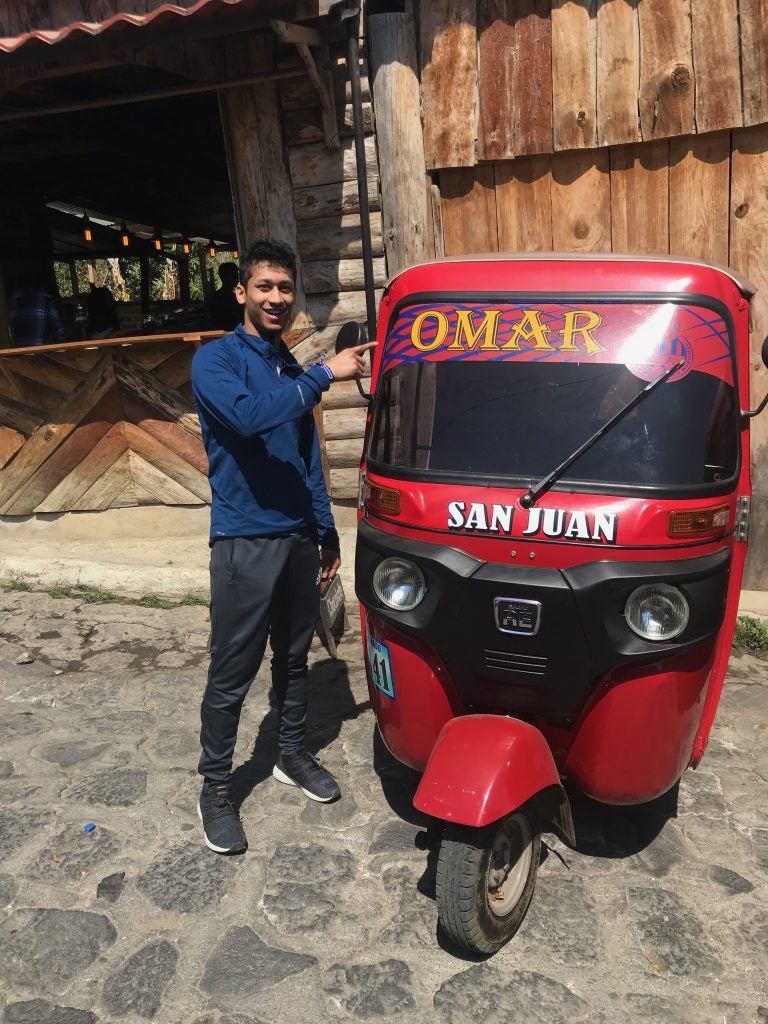I visited Guatemala this past Spring break. The Ross School of Business sent my cohort and I for a service trip hosted by International Samaritan and fully-funded by the Royal Bank of Canada. The purpose of the trip was to work at a school in a landfill community in Escuintla, Guatemala, one of Guatemala’s more financially disadvantaged cities. Our ultimate aim of the Spring break trip was to better understand the nature of business in Guatemala, better understand the culture of Guatemala, and to help build a soccer field for the school in Escuintla.
Our advisor, Katie, held morning and evening reflections, a chance to think about our experiences each day. The reflections allowed me to analyze the ways every experience of each day, whether big or small, affected my ideas and changed the way I thought. Fortunately, my fellow cohort members were all willing to partake in the dialogue; such a willingness allowed us to receive the most benefit from the sessions. We even took the conversations outside of reflection and continued them throughout the day.
Ultimately, our discussions led to similar conclusions about mission and service trips: mission and service trip groups have much learning to do, as there’s so many hegemonic, racial, and societal insensitivities that could occur and often do occur. These are aside from the fact that mission trips, specifically, help others while representing a certain religious sect, an outdated and pompous form of spreading religion. (Believing your way in America is always the “best way.” Showing signs of cultural disrespect. Taking pictures with babies and children you don’t know—just for Instagram likes. Even becoming friends with one of the local children only to leave them a week later.) These issues go unchecked most of the time and continue to be a problem on mission and service trips. Consequently, understanding the complexity of helping others in different countries is one of the most important insights I’ve gained.
By Omar Uddin




